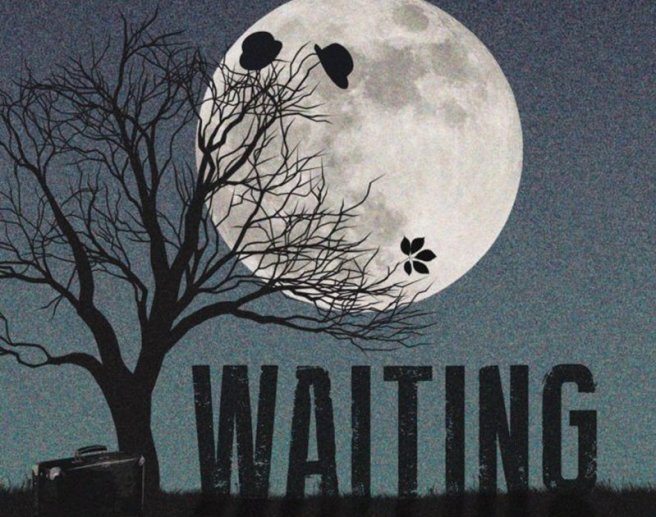
“Nothing happens. Nobody comes, nobody goes. It’s awful.” ― Samuel Beckett
We have never had a care system that provides people who need help with addiction the resources they need to heal. For me, one of the most poignant lessons in how hard it is to get people what they need to heal happened with PA Act 106 of 1989. Other states had done similar laws before we got around to putting one on the books here in PA. This occurred because some people decided to stop waiting. Once passed, the insurance industry here in PA largely ignored the law for many years. A lot of people died. I knew some of those who did. Families testified in front of our legislature and went to court to get the insurance industry to follow the law in respect to residential treatment. It went all the way to the State Supreme Court, who upheld a lower court decision affirming the law in 2009. It took action, not waiting.
For those who worked on this one facet of the law followed, it was a Sisyphean process measured in decades. It took a generation to get at least 30 days of care for the people whose insurance plans are covered by this law, which does not specify a maximum number of days. Neverminded that the NIDA has long noted that 90 days is the minimum dose of effective care for an average SUD. Almost nobody gets that with private insurance in America! Other elements of the law, including mandated family counseling and intervention services do not appear to be adhered to as I sit here today and write this. 33 years later, and we are still waiting for Godot. Even as our loved ones die. It is an outrage. Can you imagine if this was some other condition impacting one in three families and having this happen?
We keep waiting. As the Beckett quote above notes, nobody comes, nobody goes, it is awful. Seven years ago, I was part of a process in PA looking at barriers to SUD care that occurred as a result of a bipartisan effort to examine access to addiction treatment through health plans and other resources under the PA House Resolution 590 of 2015. We did just that, holding hearings across the state and listening to the community. As a taskforce, we recommended in this report that “health plans provided by employers to cover substance use disorder treatment, should identify that they are in fact subject to Act 106 on an individual’s insurance card to assist consumers and providers in efficiently accessing those services. The information provided to Pennsylvanians covered by Act 106 plans should delineate all services available including family and intervention services.” People cannot access a benefit that they do not know they have.
Yet, It is still not done seven year later; in the midst of the largest addiction epidemic we have ever faced, we cannot seem to get lifesaving information on the back of our insurance cards. Thousands of lives and tens of million dollars of public resources could have been saved if families knew that their insurance companies were legally required to offer these services by seeing it on the back of their insurance cards. Somehow, we miss such huge and simple opportunities to save lives and resources in ways that end up being measured so tragically. Our families deserve better.
Somehow we still do not have this life saving information on Pennsylvania insurance cards. I think it belongs there! I suspect a lot of families struggling with an addicted family member would agree if they even knew they were mandated under many insurance plans by this law. Family counseling and intervention services can get people into care earlier and help in the recovery process. The authors of Act 106 knew that when they wrote it into the law so many years ago. Let’s make sure every Pennsylvanian family who is eligible knows about this benefit. Those who have died no longer have a voice, they are counting on us. Let’s get it done in their names!
I do see a sliver of light on the federal side, perhaps we may not have to wait quite so long for our federal law to be enforced as in our state. Under the leadership of US Labor Secretary Marty Walsh, the highest government official in US history to be a person in open addiction recovery, we have finally focused on enforcing our national parity law with some vigor. Three weeks ago the US Department of Labor released this report to Congress. This is the most significant effort to enforce this federal law in the 14 years that the Paul Wellstone and Pete Domenici Mental Health Parity and Addiction Equity Act of 2008 (MHPAEA) has been on the books. We can help by reporting concerns with our benefits by contacting the US Department of Labor about parity compliance at askebsa.dol.gov or by calling 1-866-444-3272.
What the report to Congress found was sadly predictable for those of us in the trenches. “Every plan and issuer that the EBSA (Employee Benefits Security Administration) sent a request to initially responded with insufficient information. “About one-third of those requests resulted in initial determinations of noncompliance.” This translates to thousands of families not getting the care that is required by federal law. According to the report, most of the companies audited had not even considered if they were in compliance with this 2008 law until they were audited.
Some of the report points that stuck out to me:
- Too often, plans had not completed or started a comparative analysis until after EBSA requested one. In some cases, the plans had imposed barriers for years without analyzing compliance with the law.
- Approximately 40% of plans and issuers responded to EBSA’s initial request letter with a request for an extension of time to respond. This suggests that had not bothered to look to see if their plans were in compliance with the law.
- One of the entities reviewed had impermissible limitations in the form of MH/SUD continued-stay criteria requiring demonstrable progress for continued care coverage, as well as MH/SUD discharge criteria resulting in a loss of coverage if there was no significant improvement in their care or if they left against medical advice.
- A large, self-funded plan, with 7,600 participants, specifically excluded methadone and naltrexone as treatment.
As I was absorbing this report to Congress, I ran across this article on Vox news: Her son died after insurers resisted covering drug rehab. It tells the all too familiar story of a mother, Maureen O’Reilly who thought she had good insurance coverage for her son, Ed Fahy. He kept being denied the proper level of care he needed. He ended up getting stuck in the “Florida Shuffle” of patient brokering. According to the article, independent reviews found he did not get the right level of care. He died of a cocaine and fentanyl overdose in a Florida recovery house. The article notes that her insurance companies had run into trouble with the parity act discussed above. Mr. Fahy ran out of time. She is now suing the insurers after a host of denied care. Hopefully it will help save someone else’s son or daughter.
So many of us in this field see these types of stories year in and year out. Ignoring laws and denying care is a cost of doing business for far too many of these companies. Here in PA, perhaps someday we will get the insurance cards that identify that the insured are protected by a law passed when I was just 24 years old. It should have been easy, but it seems not. We should not continue to wait in the trenches for Godot. It is a time of action.
The only way that this story ends differently than Beckett’s play is if we stop waiting for Godot.
